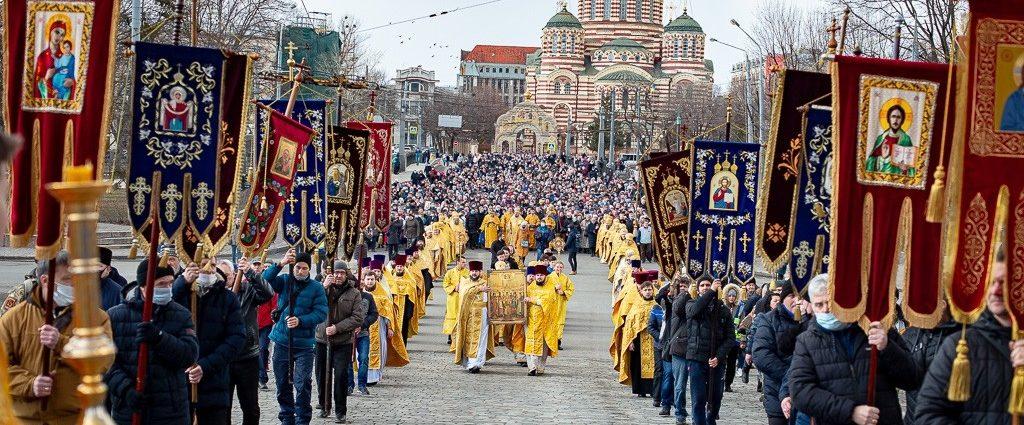
The Moscow Patriarchate, a religious organization operating in Ukraine along with the newly-created Orthodox Church of Ukraine that's independent of Russian influence, has led believers to take part in religious processions across Ukraine on Sunday, March 21, with a formally declared aim of "praying for the end of the pandemic".
At the same time, the events were held in defiance of quarantine restrictions as the latest covid hazard zoning implied a ban on mass events, including religious ones, DF.news reported.
In Kharkiv alone, some 3,000 people took part in the procession, the Suspilne public broadcaster reports.
Background
The Unification Council of members of the Ukrainian Orthodox churches in Kyiv on December 15, 2018, elected Metropolitan of Pereyaslavsky and Bila Tserkva from the then Ukrainian Orthodox Church of the Kyiv Patriarchate Epifaniy (also known as Epifaniy I) as head of the new local Orthodox Church in Ukraine.
Read alsoSituation "critical": Kyiv region introducing lockdown following capital cityOn January 6, 2019, Epifaniy, as Primate of the Orthodox Church of Ukraine and Metropolitan of Kyiv and All Ukraine, received from Ecumenical Patriarch Bartholomew I in Istanbul the tomos of autocephaly (independence) of the Orthodox Church of Ukraine. Metropolitan of Kyiv and All Ukraine Epifaniy was inaugurated as Primate of the newly created Orthodox Church of Ukraine at Kyiv's Saint Sophia Cathedral on February 3.
Ukraine's intelligence chief Valeriy Kondratiuk said one of the forms of Kremlin pressure on Ukraine is through promoting the idea of a "Russian Orthodox Church". To this end, Russia employs a wide range of tools "to hinder the process of formation of the Orthodox Church of Ukraine, manipulating the feelings of Ukrainian believers and trying in every possible way to preserve its influence on them."
"While in possession of levers on the religious sphere, Russian special services use the ROC both as 'hard' power (to inspire rallies that could easily turn into show-off clashes with law enforcement or provocateurs) and as 'soft' power (influencing the minds of worshipers)," explained Kondratiuk.

